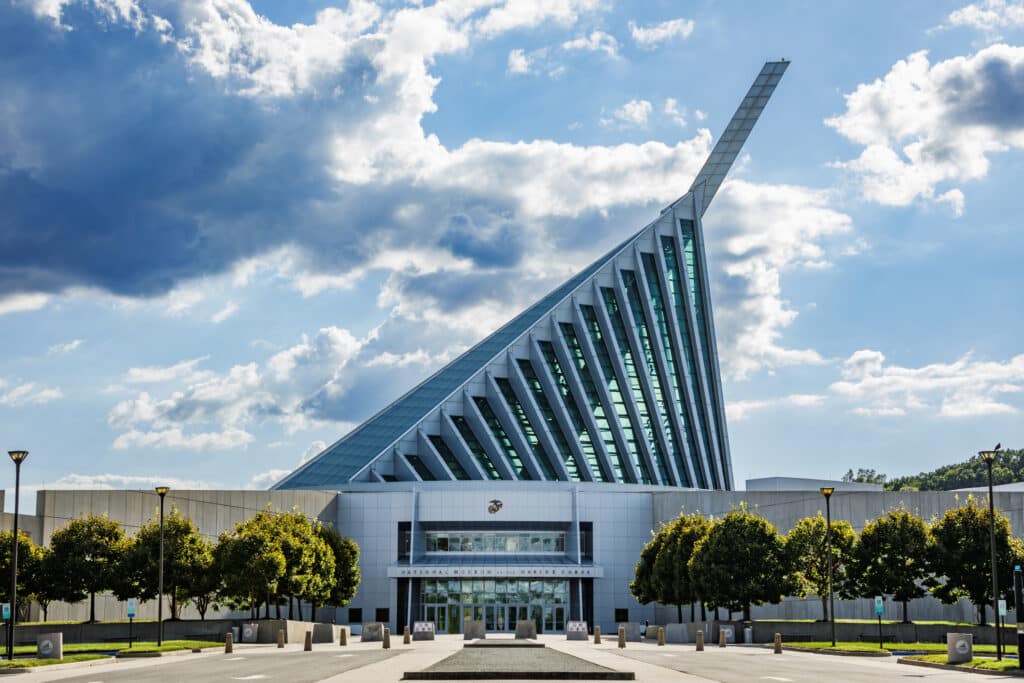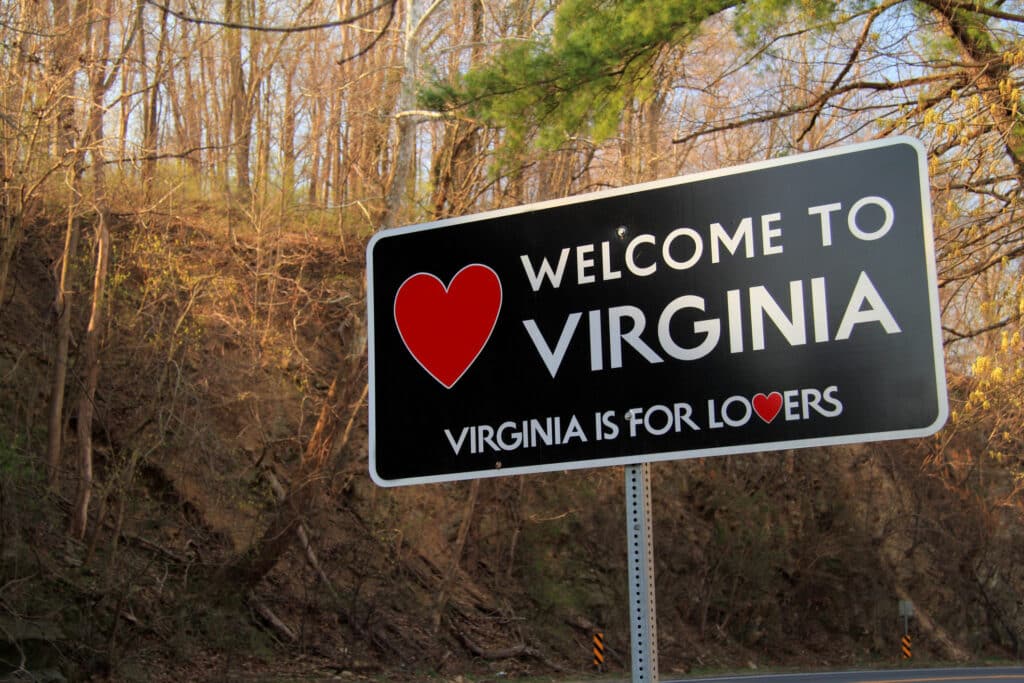Moving to a new state is a huge life change that can feel overwhelming and daunting. Whether you’re relocating for career opportunities, family reasons, or simply seeking a fresh start, moving to Virginia comes with its own unique set of considerations and challenges. While the process of uprooting your life and establishing yourself in a new place is never simple, having a clear understanding of what awaits you can make your transition smoother and more manageable. Knowledge truly is power when it comes to relocation, and being well-informed about your future home can help you navigate the changes with confidence and excitement rather than anxiety.
What You Need to Know Before Moving to Virginia
Are you considering moving to Virginia? The Old Dominion state offers a unique blend of historical richness, modern opportunities, and natural beauty that makes it a wonderful destination for newcomers. Whether you’re relocating for work, education, or lifestyle changes, Virginia presents a diverse landscape of possibilities. From its bustling urban centers near Washington D.C. to its peaceful coastal communities and picturesque mountain towns, the state caters to various preferences and needs. Before you make the move, here’s what you should know about your potential new home state.
It is Full of History
Virginia is a living museum of American history, with roots dating back to the earliest European settlements. It was home to eight U.S. presidents and the site of the first permanent English colony at Jamestown. Because of this, the state has played a pivotal role in shaping the nation. From Colonial Williamsburg’s preserved 18th-century buildings to the numerous Civil War battlefields scattered across the state, history enthusiasts will find countless opportunities to explore America’s past. It is also full of historic sites like Mount Vernon, Monticello, and the Appomattox Court House that offer visitors a tangible connection to significant moments in American history. However, the state’s rich historical heritage is not just preserved in museums and monuments but is woven into the fabric of daily life, with many towns and cities maintaining their historical architecture and cultural traditions.

There’s a Large Military Presence
Virginia has one of the largest military populations in the United States, something that is important for anyone considering moving to Virginia to know. The state has several major military installations, including Naval Station Norfolk (the world’s largest naval base), Fort Belvoir, Marine Corps Base Quantico, and Joint Base Langley-Eustis. These bases not only provide employment for military personnel but also create numerous civilian job opportunities in defense-related industries and support services. The military presence significantly influences local communities, contributing to a diverse population mix and strong support networks for service members and their families. Many neighborhoods near these installations offer military-friendly housing options and specialized services, making the transition easier for those relocating with the armed forces.
The Cost of Living is a Little High
If you’re moving to Virginia, it’s important to know that the cost of living can be higher than many other states, particularly in areas near Washington D.C. and in major urban centers. Northern Virginia, especially, ranks among the more expensive regions in the country, with housing costs significantly above the national average. While some rural areas offer more affordable living options, urban and suburban areas like Arlington, Alexandria, and Fairfax County have significantly higher prices for homes and apartments. However, this higher cost of living is often offset by strong job opportunities, higher average salaries, and excellent public amenities. Residents typically find that while housing and daily expenses might be steeper, the quality of life, robust economy, and access to cultural and educational resources make the investment worthwhile.
Traffic Can Get Pretty Bad
Traffic congestion is also something you need to consider when moving to Virginia, particularly in the northern regions and around major cities. The Interstate 95 corridor and the Capital Beltway (I-495) are notorious for their heavy traffic during rush hours, with commute times often doubling or tripling during peak travel times. Northern Virginia’s proximity to Washington D.C. means that many residents face lengthy commutes, especially those traveling between suburbs and city centers. To manage this challenge, many Virginians rely on alternative transportation options such as the Metro system, commuter trains, carpooling, or flexible work schedules. While some areas outside the major metropolitan regions experience less congestion, it’s essential to consider your daily commute when choosing where to live in Virginia, as traffic patterns can significantly impact your quality of life.
It Has Some of the Best Colleges in the Country
Virginia boasts an impressive array of prestigious higher education institutions, making it a top destination for students seeking academic excellence. The state is home to the University of Virginia, founded by Thomas Jefferson and consistently ranked among the top public universities in the nation. There’s also Virginia Tech, known for its engineering and research programs, and the College of William & Mary, the second-oldest institution of higher learning in America, that work to further enhance the state’s academic reputation. Other notable institutions include George Mason University, Virginia Commonwealth University, and James Madison University, each offering unique specializations and opportunities. These schools not only provide outstanding educational opportunities but also contribute significantly to the state’s research capabilities, economic development, and cultural vibrancy. The presence of these institutions creates vibrant college towns and communities, offering rich cultural experiences and attracting talented individuals from around the world.
Virginia has a Little Bit of Everything
When moving to Virginia, you’ll discover one of the state’s most appealing features is its incredible geographical diversity, offering newcomers a choice of vastly different lifestyles and environments. Those moving to Virginia’s coastal regions can enjoy the sun-soaked beaches of Virginia Beach and the Eastern Shore, while others might prefer relocating to the western part of the state near the majestic Blue Ridge Mountains and Shenandoah Valley. The state provides endless possibilities: you could be moving to Virginia’s Piedmont region with its rolling hills, settling in the fertile Valley, or choosing a home surrounded by dense forests. If you’re moving to Virginia’s urban centers, you’ll find metropolitan amenities in Northern Virginia and Richmond, while those seeking a quieter pace can settle in charming small towns or rural communities. This variety not only makes moving to Virginia attractive for outdoor enthusiasts but ensures that new residents can find their perfect setting, whether they prefer coastal living, mountain adventures, or anything in between.
You’ll Experience all Four Seasons
Moving to Virginia means experiencing the full spectrum of seasons, each with its distinct charm and character. Summers are warm and humid, perfect for beach trips to Virginia Beach or water activities on the Chesapeake Bay. Fall transforms the landscape into a spectacular display of colors, especially in the Shenandoah Valley and Blue Ridge Mountains, making it an ideal time for hiking and outdoor festivals. Winters, while generally mild compared to northern states, but still bring occasional snowfall in the mountainous regions, offering opportunities for skiing and winter sports. Spring arrives with beautiful cherry blossoms and dogwood trees in bloom, accompanied by comfortable temperatures that make it perfect for exploring the state’s numerous historical sites and outdoor attractions. Those moving to Virginia should be prepared for this seasonal variety by having appropriate clothing and gear for each season’s unique characteristics.

It is Close to Washington D.C.
One of the biggest advantages of moving to Virginia is the state’s proximity to Washington D.C. For those settling in Northern Virginia, in areas like Arlington, Alexandria, and Fairfax County, the nation’s capital is just minutes away. This proximity means residents moving to Virginia can easily access world-class museums, national monuments, international festivals, and diverse cultural events. Being close to D.C. also allows for excellent job opportunities, in government, defense, technology, and consulting sectors. Many people choose to live in Virginia while working in D.C., benefiting from Virginia’s relatively lower tax rates while still having access to the capital’s amenities and career opportunities.
It Has Great Healthcare
Virginia’s healthcare system stands out as one of the best in the nation, offering residents access to top-tier medical facilities and innovative treatments. The state is home to numerous nationally ranked hospitals and medical centers, including the University of Virginia Medical Center, VCU Medical Center, and Inova Fairfax Hospital. These hospitals not only provide exceptional patient care but also contribute to groundbreaking medical research and advances in treatment methods. Virginia’s healthcare network extends beyond it’s major cities, with quality medical facilities and clinics serving rural communities as well. The state has also embraced telemedicine services, making healthcare more accessible to residents in remote areas. Additionally, Virginia’s robust healthcare infrastructure includes specialized centers for cancer treatment, cardiac care, and pediatric medicine, ensuring comprehensive medical coverage for residents of all ages and needs.
Virginia is a Great Place to Retire
If you’re moving to Virginia for retirement, you’ll find it consistently ranks as one of the best states for retirees, offering an appealing combination of tax-friendly policies, excellent healthcare facilities, and diverse lifestyle options. For those moving to Virginia during their retirement years, the state provides valuable tax breaks, including partial tax exemption on Social Security benefits and favorable property tax rates for seniors. Whether you’re moving to Virginia’s peaceful coastal communities in Virginia Beach or the serene mountain towns in the Shenandoah Valley, retirees can choose from a variety of living environments. The state’s mild climate, with four distinct but manageable seasons, makes it comfortable for year-round activities. Additionally, Virginia’s rich cultural scene, abundance of historical sites, and proximity to major metropolitan areas ensure that retirees have plenty of opportunities for entertainment, lifelong learning, and social engagement. The presence of top-rated medical facilities throughout the state also provides peace of mind for seniors moving to Virginia who are concerned about healthcare access.

Virginia is for Lovers
“Virginia is for Lovers” isn’t just a catchy slogan – it’s the state’s official tourism motto since 1969, capturing the essence of what makes Virginia special. The phrase originally promoted the state’s romantic appeal, from intimate bed-and-breakfasts in historic towns to scenic mountain getaways and peaceful coastal retreats. Today, it has evolved to encompass a broader meaning, suggesting that Virginia is for all kinds of lovers – nature lovers, history lovers, food lovers, wine lovers, and adventure lovers. Whether you’re enjoying a sunset walk along Virginia Beach, touring wineries in the Shenandoah Valley, exploring colonial architecture in Alexandria, or hiking the Appalachian Trail, Virginia offers countless ways to fall in love with its diverse attractions and experiences.
Things to do Before Moving to Virginia
Moving to a new state requires careful planning and preparation to ensure a smooth transition. Virginia, with its unique regulations, diverse communities, and specific requirements for new residents, demands attention to several important details before you make your move. From legal obligations like updating your driver’s license to practical considerations such as setting up utilities and researching schools, completing these essential tasks will help you establish yourself confidently in your new home state. Here’s a comprehensive checklist of things to handle before and during your relocation to Virginia.
- Update your driver's license
- Research schools
- Get to know the community
- Set up your utilities
- Get healthcare
- Know where your emergency services are
Let Our Regency Team Help If You’re Moving to Virginia
If you’re planning on moving to Virginia, our experienced team at Regency Moving is here to make your transition smooth and stress-free. Our professional movers understand the unique challenges of relocating to Virginia and can help with everything from packing and transportation to storage solutions. With our extensive knowledge of Virginia’s different regions and communities, we can provide valuable insights and ensure your belongings arrive safely at your new home. Contact Regency Moving today for a free consultation and let us help you start your exciting new chapter in Virginia with confidence and peace of mind.

